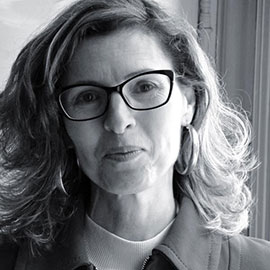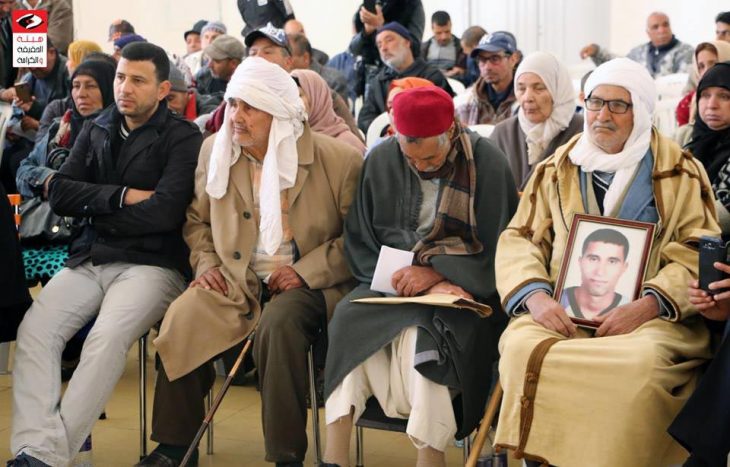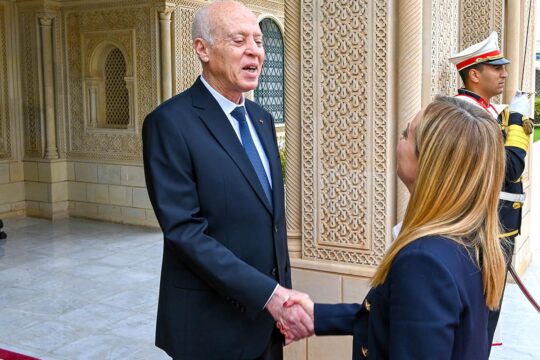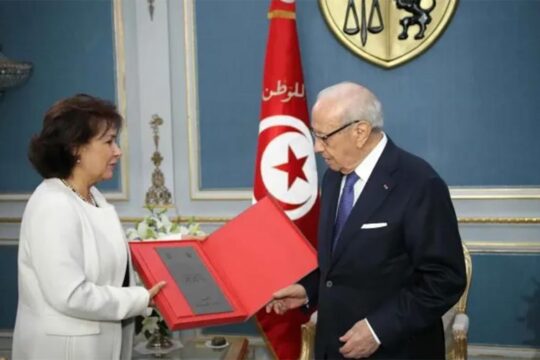At the headquarters of the Kasbah Government Palace, protected by several corps of security agents and soldiers armed to the teeth, an unprecedented incident occurred on the afternoon of 23 April. Two men, former victims of despotism, remained inside the compound for several hours. One of them, very upset, threatened to slit his wrists, a few metres from the office of the President of the Government, Youssef Chahed.
Since the morning, a sit-in had been organised on the spot to demand the activation of the Dignity and Rehabilitation Fund for the victims of the dictatorship, intended to financially compensate 20,000 men and women (figure established by the Instance for Truth and Dignity on the basis of precise criteria), victims of the former regime. This was not the first time that such a protest action about reparations had taken place in Tunis. A few weeks ago, victims gathered in front of Parliament. They then held a press conference to remind the government of its obligations to the survivors of the dictatorship. But on Tuesday, the adviser to the head of government in charge of transitional justice, Said Blel, took the initiative to invite two of the demonstrators into his office to negotiate with them a possible implementation of the Fund's implementation schedule. Bashir Khalfi, an Islamist and former political prisoner, author of three books on torture, and Makram Hajri, communist opponent of Ben Ali, the former Tunisian president, thus walked into the palace.
Deaf dialogue and security logic
However, inside, the discussion turned sour. Tension rose, minds got heated, especially when the counsellor ducked out and denied being aware of this issue. Makram Hajri and Béchir Khalfi refused to leave the premises. Then Bashir Khalfi threatened to cut his wrists with a blunt object. Sihem Bensedrine, the president of the Instance for Truth and Dignity (IVD), was called upon to help by the two victims. The government official also called the League for Human Rights (LTDH) to help mediate this conflict. "According to our telephone conversation, one of the victims seemed to me to be in a sorry state. On the verge of suicide. The man even entrusted his children to me," said Sihem Bensedrine.
Upon their arrival, however, neither the President of the Truth Commission, who came with a psychologist and another Commissioner, nor the two representatives of the LTDH were allowed to enter the government palace. "The order was given to solve the problem through security measures. Like in Ben Ali's time. At the Kasbah, I found only cops in front of me. I would have preferred a political and negotiated solution," criticized Sihem Bensedrine.
Police custody
Early evening, Béchir Laabidi, general secretary of the LTDH, himself a former dissident trade unionist during the dictatorship, managed to visit the two men while they were in police custody in Bab Souika's national security district in the Tunis medina. "Bashir Khalfi had a cut on his forehead, resulting from an injury caused by a piece of glass he allegedly broke in the Kasbah, according to the government representative. He was previously treated by the medical staff of Charles Nicolle Hospital. He seemed pretty depressed. The two men were interviewed by the police, pending the decision of the public prosecutor," he testified.
This decision came around ten o'clock in the evening: the two men were officially under arrest, for a period of 48 hours in police custody, as provided by law.
Victims have enough, and they worry
Above all, the incident shows a deep unease. The episode is a sign of the extent of the victims' frustration - some of whom suffer from grave economic insecurity and destitution - and their impatience with the inertia of the government responsible for managing the Dignity Fund. There seems to be no sign from the government that this compensation fund will soon be activated for 20,000 men and women victims of violence between 1955 and 2013 (period covered by the IVD's mandate). The victims are all the more concerned because the draft of a bill, prepared by the services of the Ministry of Relations with Constitutional Bodies and Human Rights, has been circulating in Parliament for several weeks and promises amnesty to defendants in the specialized chambers.
The IVD denounces the fact that, so far, no bank account number of the Fund has been published to receive donations that could be used to finance it. At the IVD, since 12 January 2019, the decisions on reparations have been distributed in batches of people concerned. Lists of victims invited to receive these decisions - which assess individual compensation, depending on the violations suffered - are published almost daily on the official website of the Truth Commission. The compensation unit has been set at 2000 dinars (about 600 euros). For example, homicide, evaluated as a 100% offence, is compensated up to 200,000 dinars (60,000 euros) and rape, evaluated at 75% as an offence against the integrity of the person, 140,000 dinars (41,000 euros). Decisions on reparations include three categories: resistance to colonization, individual victims, and groups, namely associations, parties and organizations that were victims of injustices and violations during the dictatorship.
According to lawyer and human rights activist Halim Meddeb, who was also able to meet with the two arrested protesters, "Bashir Khalfi and Makram Hajri face up to four years in prison: one year for violating of property and three years for insulting a public official in the performance of his duties". Bashir Khalfi has already announced that he is starting a hunger strike on 24 April. And for the time being, in the face of the victims' demands and sit-ins, the government's ostrich policy is continuing.






